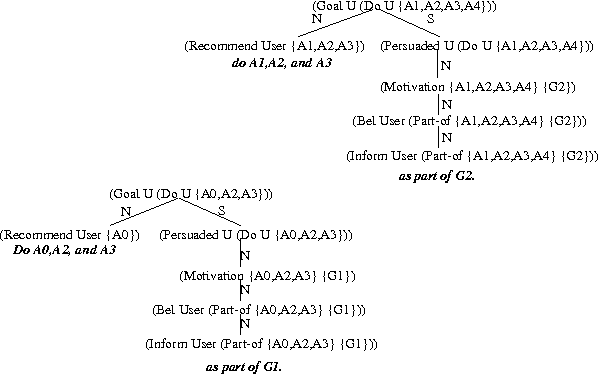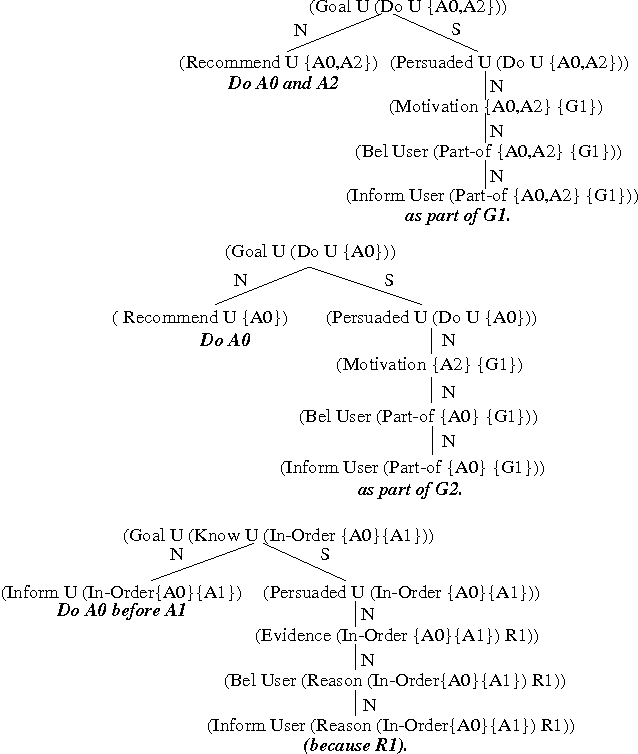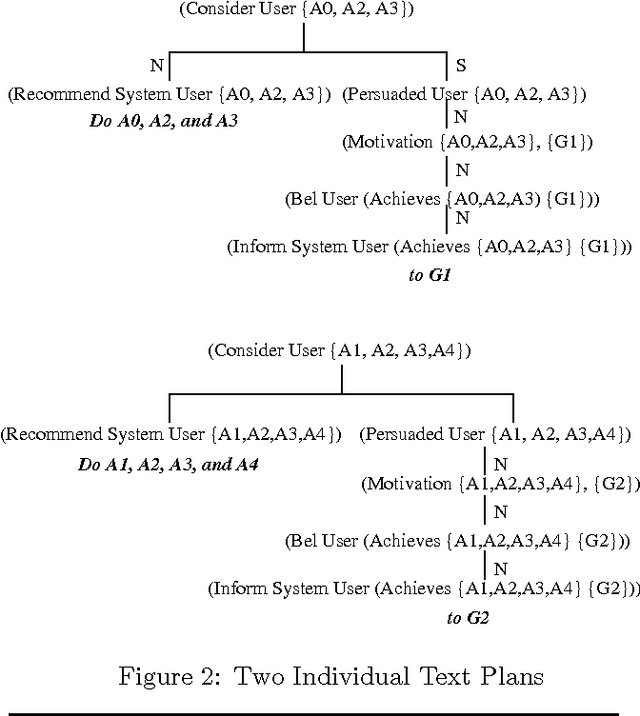Terrence Harvey
Department of Computer Science, University of Delaware
Integrating Text Plans for Conciseness and Coherence
May 28, 1998



Abstract:Our experience with a critiquing system shows that when the system detects problems with the user's performance, multiple critiques are often produced. Analysis of a corpus of actual critiques revealed that even though each individual critique is concise and coherent, the set of critiques as a whole may exhibit several problems that detract from conciseness and coherence, and consequently assimilation. Thus a text planner was needed that could integrate the text plans for individual communicative goals to produce an overall text plan representing a concise, coherent message. This paper presents our general rule-based system for accomplishing this task. The system takes as input a \emph{set} of individual text plans represented as RST-style trees, and produces a smaller set of more complex trees representing integrated messages that still achieve the multiple communicative goals of the individual text plans. Domain-independent rules are used to capture strategies across domains, while the facility for addition of domain-dependent rules enables the system to be tuned to the requirements of a particular domain. The system has been tested on a corpus of critiques in the domain of trauma care.
* 7 pages, 7 Postscript figures, uses colacl.sty
Generating Coherent Messages in Real-time Decision Support: Exploiting Discourse Theory for Discourse Practice
Jul 28, 1997


Abstract:This paper presents a message planner, TraumaGEN, that draws on rhetorical structure and discourse theory to address the problem of producing integrated messages from individual critiques, each of which is designed to achieve its own communicative goal. TraumaGEN takes into account the purpose of the messages, the situation in which the messages will be received, and the social role of the system.
* 6 pages
 Add to Chrome
Add to Chrome Add to Firefox
Add to Firefox Add to Edge
Add to Edge